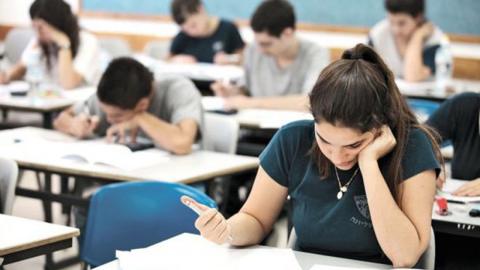Education in Israel is at a crossroads
The survey, conducted by the Geocartography Institute, examined teachers’ roles amid crises, what students are being prepared for, and societal expectations. Bloch said schools must now foster independence, critical thinking, and responsibility. “Teachers who were flexible and tolerant of uncertainty excelled during the war, while rigid ones struggled.”
Students face unpredictable learning schedules, including remote days, so they must take more responsibility in leading their own learning, with teachers acting as mentors. Parents, she added, want schools to provide meaning, skills, and resilience, not just supervision.
On whether all students can handle responsibility, Bloch stressed that giving children tools and guidance boosts success for both struggling and high-achieving students.
She also highlighted a cultural challenge: “Excessive certainty blinds people to complexity, causing crises. Encouraging questions helps children build identity and strengthens society. For example, the legal reform debate nearly fractured the state due to a lack of dialogue. Teaching multiple ways to be Israeli can ease future conflicts.”
Bloch concluded that the education system’s current crisis, alongside broader societal challenges, presents a chance to rethink teaching, empowering students and preparing them for a complex, changing world.
Shimon Cohen

